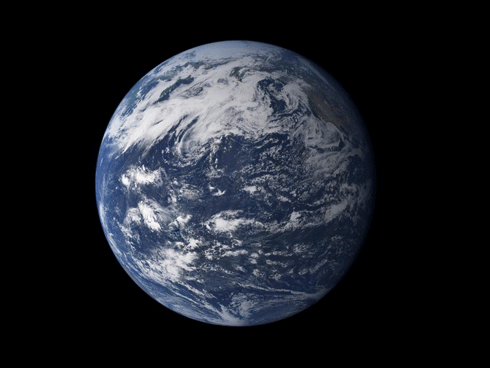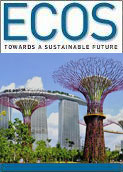
|
Published: 25 March 2013
CSIRO collaboration to grapple with global issues
How will humanity provide food, fuel, power, and water for 9 billion people over the next hundred years without destroying the environment? Such ‘wicked’ problems – population growth, food, water, energy and climate change – are usually regarded as too overwhelming or complex for one country or scientific discipline to solve.

|
|
Global problems will require a global perspective. Credit:
NASA
|
To help prepare for these future challenges, the Australian Government requested CSIRO to represent the interests of the nation's research community within the independent International Institute for Applied Systems Analysis (IIASA). Through its policy-oriented research, IIASA applies advanced systems analysis to examine the complex systems underpinning today's global challenges.
During a recent visit to IIASA’s Vienna headquarters, a CSIRO delegation met with IIASA executives and research leaders to scope areas of collaboration around energy, biodiversity and environmental management – particularly with regard to conducting large integrated assessments at global, regional, and local levels.
The delegation was led by CSIRO Environment Group Executive and IIASA Council Member Dr Andrew Johnson and included Energy Transformed Flagship Director, Dr Alex Wonhas; Dr Ian Prosser, Science Director for the Water for a Healthy Country Flagship; and Dr Mark Lonsdale, Chief of CSIRO’s Ecosystem Sciences and Biodiversity Portfolio.
Dr Wonhas said the IIASA-led Global Energy Assessment (GEA) – the most comprehensive, integrated assessment undertaken of the world's energy system – could provide many insights for Australian energy researchers, policy-makers, and industry and that CSIRO researchers could contribute local and regional research to help expand GEA’s findings.
Dr Lonsdale told the IIASA delegation that Australia has been dealing with an astonishing loss of biodiversity in recent years. But, he says, ‘as biologists, we need to do more than just say how bad the problem is. We need to try to fix the problem, work at a transformational scale with policymakers and the private sector.’
Dr Prosser pointed out that water is a particular area of concern in Australia. ‘Australia lives in the face of extreme hydrological variability, and climate change is already leading to a dryer climate,’ he said. ‘We’re living in a different world now, and we need to come up with different policy options.’
During the visit, IIASA Director & CEO, Professor Dr Pavel Kabat, invited CSIRO to join IIASA’s new World Futures and Solutions initiative, which aims to provide a global, integrated assessment of water challenges and solutions.
Source: CSIRO & IIASA



